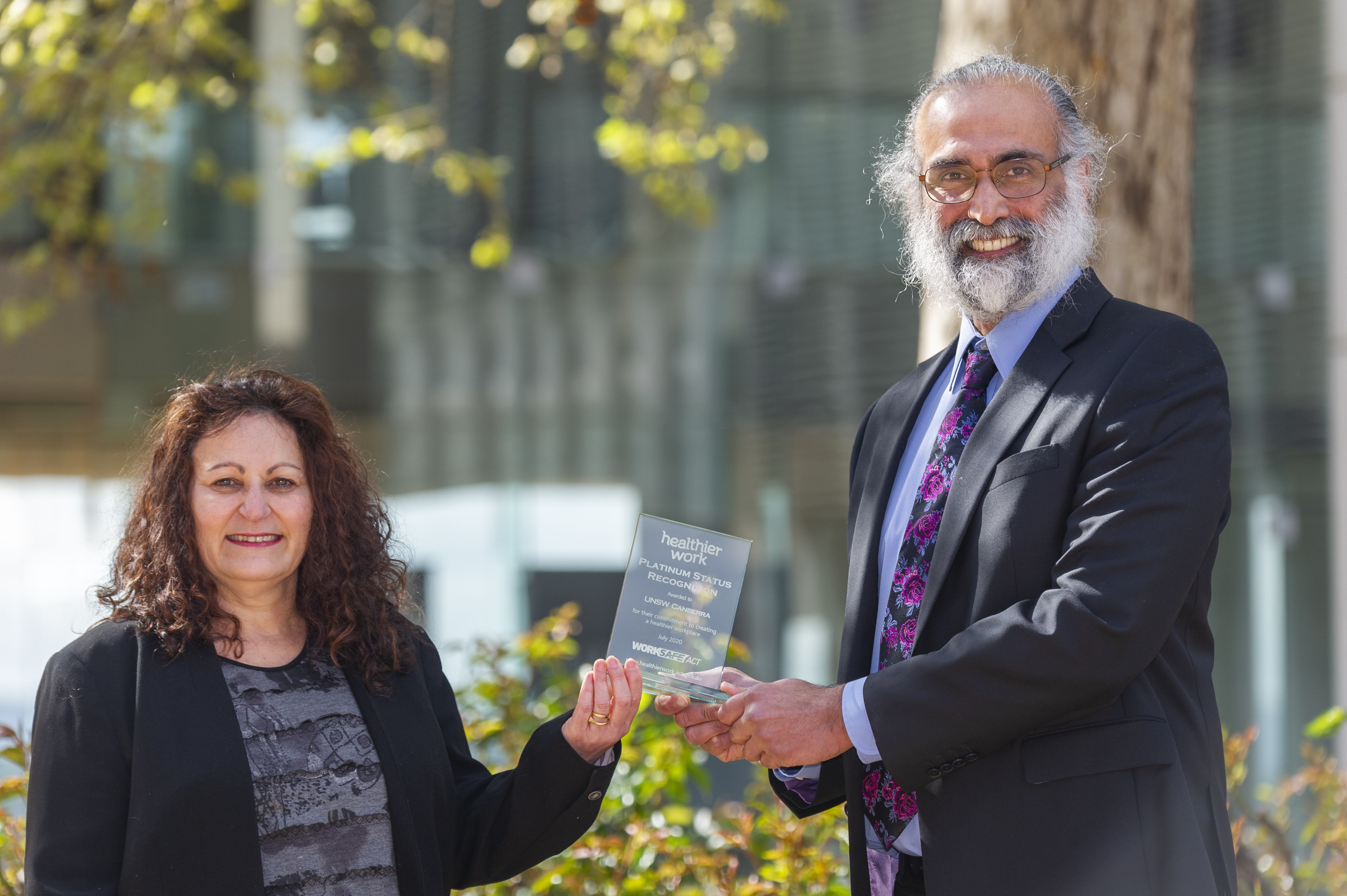UNSW Canberra acknowledged as a Platinum Healthier Workplace
UNSW Canberra was recognised as a Platinum Healthier Workplace by the ACT Government at an awards ceremony this morning.
UNSW Canberra was recognised as a Platinum Healthier Workplace by the ACT Government at an awards ceremony this morning.

UNSW Canberra was recognised as a Platinum Healthier Workplace by the ACT Government at an awards ceremony this morning.
Healthier Work is a WorkSafe ACT program that was established to support local businesses to thrive as health promoting environments.
UNSW Canberra has achieved platinum recognition for consistently implementing health and wellbeing initiatives for four years.
ACT Work Health and Safety Commissioner Jacqueline Agius was on campus to present the award to Deputy Rector Harvinder Sidhu.
“Today is a wonderful opportunity to acknowledge and celebrate UNSW’s ongoing commitment to work health and safety, and also for taking part in the Healthier Work Program,” Ms Agius.
“Since joining the healthier work program in 2015, I know UNSW has implemented a range of initiatives.”
Professor Sidhu said it was an honour to accept this trophy on behalf of UNSW Canberra.
“I note that we are in good company, joining organisations such as the National Archives of Australia, ActewAGL, and the Office of the Parliamentary Counsel, in achieving platinum status,” Professor Sidhu said.
“This trophy acknowledges the outstanding work done by our teams over the past four years to safeguard the health and wellbeing of our staff – driven by the Health, Safety & Facilities (HS&F) team in previous years and in 2020, the combined efforts of the HS&F, Human Resources and Equity & Diversity units.”
Over the years, the University’s initiatives have included a focus on encouraging staff to eat healthily, increase their physical activity, cut down on their alcohol use and stop smoking.
There have also been programs designed to enhance the social and emotional wellbeing of staff including workplace resilience workshops and regular yoga sessions.
“Of course, 2020 has been a more challenging year in many respects, with first the bushfires and now the pandemic,” Professor Sidhu said.
“We needed to do things a little differently this year, and we may need to change the way we do many things in the future.”
Ms Agius said workplaces have faced unprecedented challenges in 2020, with COVID-19 having a major impact on the day-to-day activities carried out by universities, in particular.
“Universities, probably more than anyone, have had to be dynamic in the way that they put in controls to ensure that everybody on campus is safe in relation to COVID-19,” Ms Agius said.
“UNSW has been agile, responsive and you have demonstrated a commitment to your staff, with the implementation of specific initiatives to support people working remotely.”
2020 health and wellbeing initiatives have also included monitoring our buildings for the impacts of bushfire smoke, safeguarding the health and safety of those who needed to remain on campus throughout the pandemic, safely providing staff flu vaccinations, and the roll out of the Mental Health First Aid Officer program.
Professor Sidhu said the University looked forward to continuing the initiative.
“UNSW Canberra has appreciated all the advice and support the Healthier Work team has been able to provide us in implementing our programs and we look forward to a continuing connection in the years ahead.”